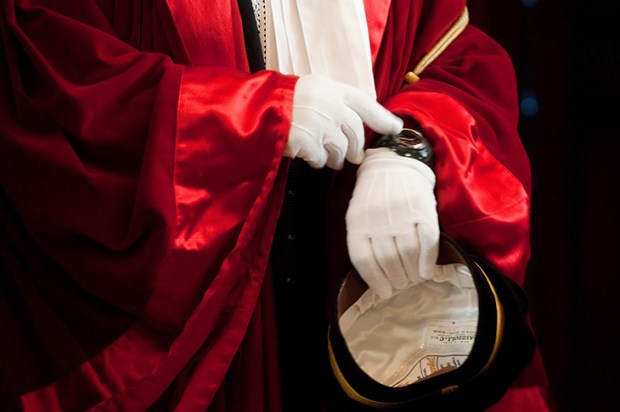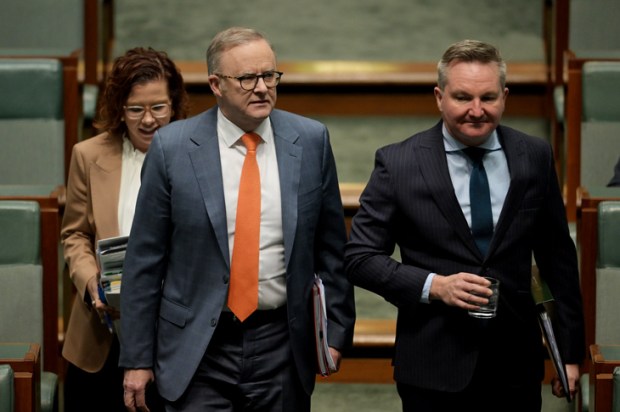It has been just on two years now since Giorgia Meloni was swept into office as Italy’s first female prime minister. Despite the predictions of gloom and the derangement from the usual quarters about a ‘shift to the far-right’, Meloni has proved to be both a steady hand and a politician driven by values.
In this vein, Meloni could be considered a trendsetter. Since September 2022, Europe has seen a move to the right, with elections in the Netherlands, France and most recently Austria making mainstream parties and European elites very worried.
However, there are those in Italy on the conservative side of politics who have been somewhat disappointed at what Meloni has achieved, or not achieved, since her election. Some have in fact lamented ‘Melonisation’, in that she has changed her tune in government compared to past declarations in opposition. Despite past criticism of European Union dictates, she has until recently developed a closeness to EU Commission President Ursula von der Leyen (commonly referred to as ‘VDL’). This is the same VDL who warned Italy prior to Meloni’s election that Brussels would ‘punish an Italian government that violates the EU’s social policy consensus’.
Unfortunately, Italy needs Brussels to provide much-needed reconstruction funds to help Italy’s economic recovery. Prudent economic management by Meloni’s government has seen Italy’s export earnings improve significantly and unemployment fall.
Italy is now in an enhanced political position as well, given Germany is in a recession and its left-wing government under Chancellor Olaf Scholz has collapsed, due in no small part to the senseless rush to net zero, and France is teetering too, thanks to a huge budget deficit and the fact it is led by a president who with his 14-year-old mentality seems to think he is a latter-day Louis XIV.
One of Meloni’s biggest fights has been over illegal immigration.
Thanks to a plan to fund African countries such as Tunisia to prevent crossings across the Mediterranean, sbarchi (landing numbers) have dropped markedly. Meloni also initiated a John Howard Nauru-style plan to process in Albania migrants from countries such as Bangladesh – the main country of origin of Italy’s migrants – and thus in theory not refugees.
The scheme which launched in October has been blocked by Italy’s judges who are refusing to allow the detention in Albania pending their deportation of these safe country migrants on the grounds that countries such as Bangladesh are not 100 per cent safe.
But Meloni is not backing down and has the majority of Italians supporting her, according to the polls. Maybe this is why Elon Musk is a big Giorgia Meloni fan. He signalled his support for her deportation scheme on X. Indeed, he has visited Meloni twice in Rome since her election. What is more, back in September, Meloni was presented with the Atlantic Council’s Global Citizen award, by – at her insistence – Musk himself.
In her acceptance speech, Meloni explained just how important values are, and, in a similar way to Argentinian President Javier Milei at Davos, told a few home truths to what was a left-wing audience. In fact, her speech should be compulsory reading for all centre-right politicians, especially in this country, if not the entire Anglosphere.
Meloni declared, ‘As a politician, you basically have two options: being a leader or a follower, to point a course or not, to act for the good of your people, or to act only driven by polls. Well, my ambition is to lead, and not to follow.’
Meloni seemingly understands that to have success in politics, you have to be willing to lose everything. You have to believe in the nation, care about the culture, and believe in your own values. And be willing to fight hard for them.
As Meloni told those in the audience, ‘We need to recover awareness of who we are. As Western peoples, we have a duty to keep this promise and seek the answer to the problems of the future by having faith in our values: a synthesis born out of the meeting of Greek philosophy, Roman law and Christian humanism.’
An unashamed admirer of Sir Roger Scruton, Meloni referred to him in telling those present of her distaste for the forces inside the West who are seeking to destroy it. Scruton called it ‘oikophobia’, from the Greek words oikos, which means home, and phobia, which means fear. Oikophobia is the aversion to one’s home, which, as Meloni pointed out, is weakening the strength of our Western identity, and that would be the best gift we can make to authoritarian regimes. ‘Our freedom and our values, and the pride we feel for them, are the weapons our adversaries fear the most.’
Pride in what the West has achieved, namely, democracy, human rights and the rule of law, is the antidote to declinism. In other words, moral courage to defend our deep roots, for that is what will produce ripe fruit in the future.
Meloni is an unashamed lover of the nativity scene – il presepe as we call it in Italian.
A few years ago, she posted a video of her putting together her presepe, in which she asks, ‘How can the image of a baby born in abject poverty be offensive, how can one be offended by the story of that baby’s parents fleeing to save his life?’ In this image, our Western values of mutual respect, tolerance, freedom and the sanctity of life are encapsulated so beautifully, whether you are a Christian or not, because, like it or not, the freest, most tolerant and prosperous societies are those with Christian roots.
The time we live in requires us to choose what we want to be and what path we want to take. Europeans are making their choice. On 5 November, Americans made their choice in the most unequivocal fashion. Do we give up hope, and say our best days are behind us, and be defined by dark deeds, or do we acknowledge that we stand on the shoulders of giants, and be inspired by their extraordinary achievements towards, in the words of this magazine’s editor-in-chief, ‘a bright golden dawn of prosperity’.
Got something to add? Join the discussion and comment below.
You might disagree with half of it, but you’ll enjoy reading all of it. Try your first month for free, then just $2 a week for the remainder of your first year.













